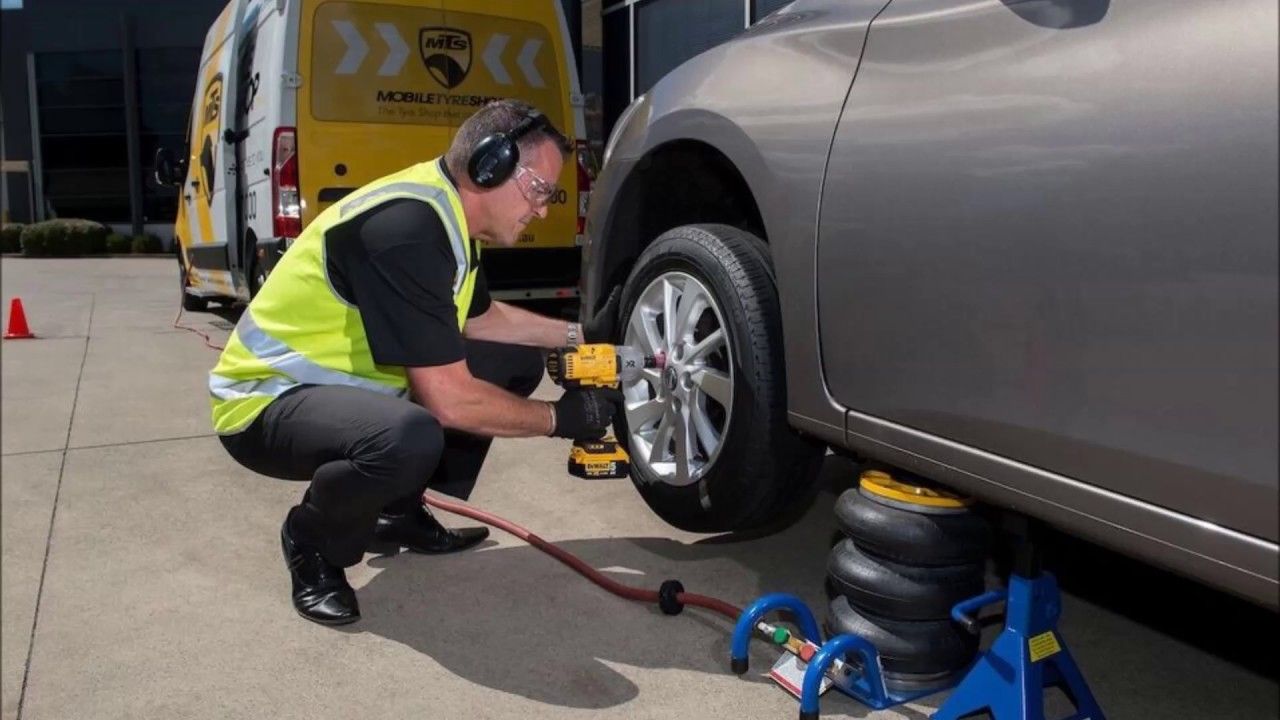
Why wait for warning lights when a timely oil change in Alexandria or tire repair Alexandria could keep you safely on the road?
Car care may seem like an afterthought, but proactive maintenance can save time and money.
Regular oil changes and tire checks are essential for your car’s longevity, but is there a “right time” for these services?
Explore the advantages and potential downsides of keeping your car’s essentials up-to-date.
The Importance of Regular Oil Changes
Oil is the lifeblood of your engine. Routine oil changes reduce friction and heat, preventing premature wear on engine parts. Skipping them can lead to costly damage, so regular changes are essential for anyone who wants their vehicle to go the extra mile.
- Extended Engine Life: Fresh oil better lubricates your engine, reducing wear and helping extend the engine’s lifespan.
- Better Mileage: Cleaner oil leads to less engine strain, which can improve fuel efficiency — a great benefit for your pocketbook.
- Improved Performance: Your engine will run smoother, ensuring optimal performance for your day-to-day drives.
Downsides of Frequent Oil Changes
While regular oil changes are vital, changing them too frequently can be unnecessary. Modern vehicles often recommend longer intervals between changes. If your car doesn’t demand an oil change, waiting a bit longer can save oil and money without affecting performance.
Why Tire Repair in Alexandria Matters
The tires are the only part of your car in constant contact with the road, making their condition crucial for safety. Regular tire repair Alexandria helps prevent issues that can lead to blowouts, poor fuel economy, and uneven tire wear.
- Enhanced Safety: Damaged tires are more prone to sudden failure. Addressing minor wear and tear early keeps you and other drivers safe.
- Cost Savings: Small repairs are often inexpensive while postponing repairs can lead to larger issues, like needing a full tire replacement.
- Better Fuel Efficiency: Properly maintained tires reduce rolling resistance, making your car more fuel-efficient and environmentally friendly.
Potential Downsides to Tire Repair
Occasionally, replacing rather than repairing may be the wiser choice. If your tires are already nearing the end of their life, investing in new ones could save you from frequent repairs. Over-repairing or patching up old tires can also affect their performance and, sometimes, your car’s stability.
How Often Should You Schedule Oil Changes?
For the best results, follow the recommendations in your car’s manual. In general, vehicles manufactured in recent years require an oil change in Alexandria every 5,000 to 7,500 miles. However, if you frequently drive in extreme weather or conditions, consider changing the oil more often.
Many newer engines and synthetic oils allow for extended intervals between oil changes. By understanding your car’s specific requirements and monitoring the oil condition, you might safely stretch your oil changes a bit further — especially if you have a lower daily mileage.
Key Signs You Need Tire Repair
Stay vigilant about your tires’ condition to avoid unexpected breakdowns. Here’s when you should schedule tire repair Alexandria:
- Tread Wear: Bald or worn-out treads mean it’s time to visit a repair shop.
- Vibration or Uneven Ride: Shaking or pulling to one side could indicate tire damage.
- Cracks and Punctures: Visible damage is a sure sign you need tire repair.
Knowing When It’s Time for New Tires
Repair isn’t always the answer, especially for older or heavily damaged tires. For tires over six years old or those with severe tread wear, replacement is usually the safest option to keep your vehicle running smoothly.
FAQs
1. How often should I get an oil change?
Typically, every 5,000 to 7,500 miles is ideal for most modern vehicles. For older models, a 3,000-mile interval may be best. Check your car’s manual for specific recommendations.
2. What are the signs that I need tire repair?
Look for worn tread, cracks, or any bulges on the tires. If you feel unusual vibrations or pulling while driving, it could also be time for a check-up.
3. Can I delay an oil change without damaging my engine?
Delaying an oil change occasionally won’t destroy your engine, but consistently extending intervals can lead to reduced performance and engine wear over time.
4. When is it better to replace rather than repair a tire?
If your tires have low tread, visible damage, or are over six years old, replacing them is often a safer and more effective choice.
5. Is synthetic oil better for my car?
Synthetic oil offers better performance, lasts longer, and withstands extreme temperatures better than conventional oil. However, it may not be necessary for all engines. Check your car's manual or consult a professional.
Conclusion
Understanding the right timing for an oil change in Alexandria and tire repair Alexandria isn’t just about following guidelines; it’s about recognizing when your car needs a little extra attention.
Regular maintenance goes beyond simply checking boxes—it keeps your car safe, efficient, and ready for anything on the road.
With a little care, you can ensure your vehicle’s performance for years. Next time you think about skipping that oil change or postponing a tire repair, remember a small investment in maintenance can prevent larger, costly repairs down the line.